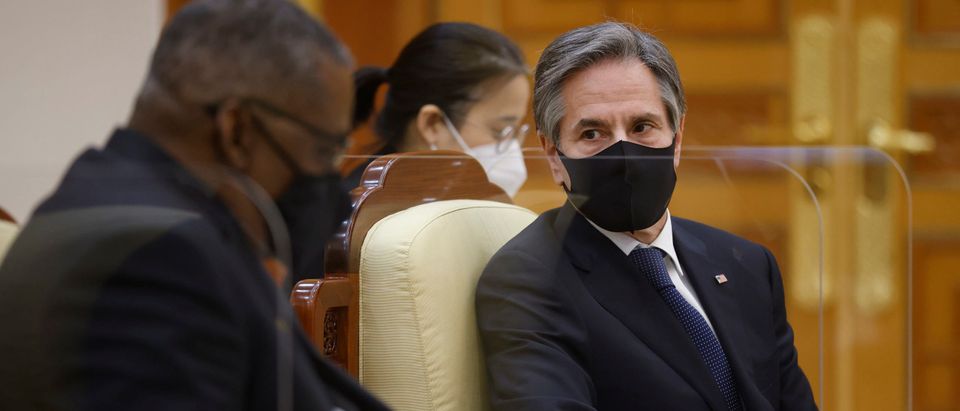The top foreign ministers from G7 countries met for the first major in-person diplomatic event since the coronavirus pandemic began Tuesday, and China was top on the list of priorities.
The United Kingdom hosted the meeting alongside participants the United States, Canada, France, Germany, Italy and Japan. The G7 conference includes most of the world’s wealthiest countries and represents a key tool in President Joe Biden’s agenda of competition with an increasingly aggressive China. Secretary of State Tony Blinken attended the meeting alongside foreign ministers of the other countries, arguing that the U.S. was back in the business of diplomacy following former President Donald Trump’s “America first” policies.
“It means leaning in and engaging in the vast array of multilateral and international organizations because that’s where so many of the rules are made. That’s where the norms are shaped,” he said. “And if we’re not leaning in, we know that Beijing is likely to be trying to do so in our place.” (RELATED: President Biden Launches Pentagon Task Force To Counter China)
The Tuesday meeting was a preliminary for the June 11-13 meeting between the heads of state of G7 countries. The U.K. will also host that event, and Biden expects to use the trip to Europe to also meet with Russian President Vladimir Putin.
The U.K. also invited the foreign ministers of Australia, India, South Korea and South Africa to join portions of the meeting. The move from the U.K. signals its support for Biden’s framing of the struggle between the U.S. and its allies and China as one that will determine whether democracy or autocracy leads the world into the future. (RELATED: Alaska Meeting Reveals Just How High Tensions Are Between US And China)
BIDEN: “I have known Xi Jinping a long time. Allegedly, by the time I left office as Vice President I had spent more time with Xi Jinping than any other world leader…he is a smart, smart guy.” pic.twitter.com/f4bun3MDXQ
— Danny De Urbina (@dannydeurbina) March 25, 2021
Biden’s administration has condemned China’s ongoing “genocide” against Uyghur Muslims in Xinjiang as well as its destruction of Democracy in Hong Kong. The administration teamed with Canada, the U.K., and the E.U. to impose sanctions against Chinese Communist Party (CCP) officials in Xinjiang. Biden has yet to impose any wide-reaching sanctions or other punishments on China, however.
Blinken has echoed Biden’s words on the Xinjiang genocide as well, calling on the CCP to allow foreign countries into Xinjiang so see the conditions there.
“The more China hears not just our opprobrium, but a chorus of opprobrium from around the world, the better the chance that we’ll get some changes,” Blinken told Congress in March. “It would be very important if China claims that there is nothing going on that it give access to the international community, to the United Nations. If they have nothing to hide, show it to us. Show the world.”


